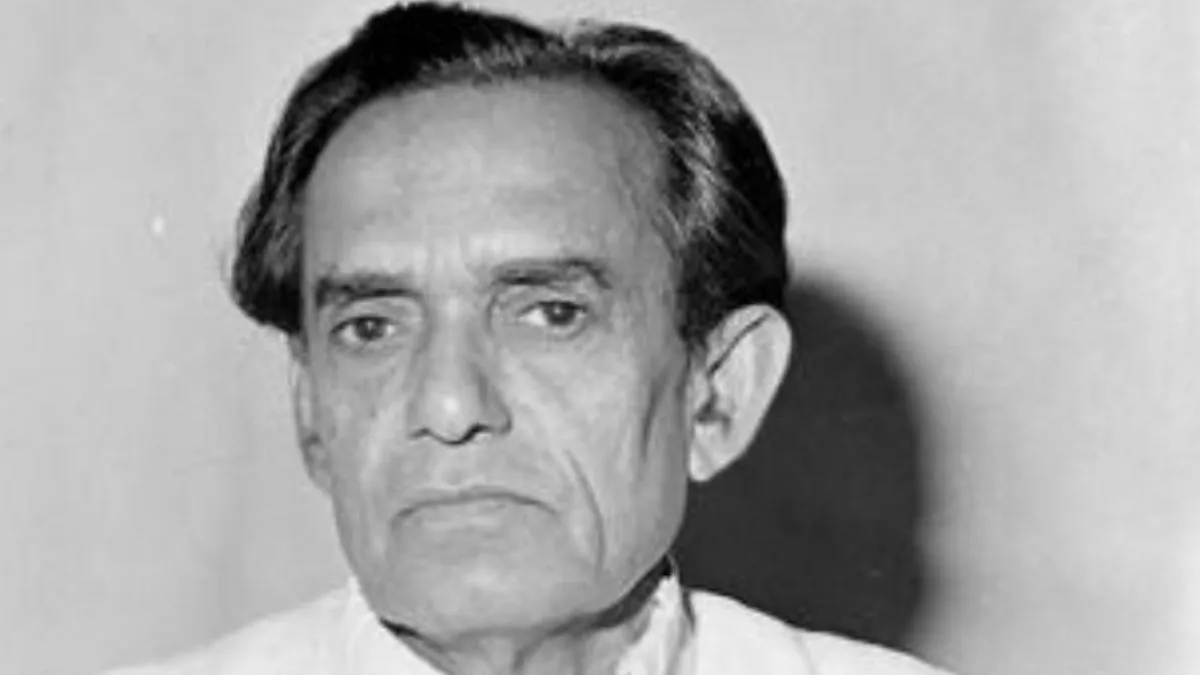- By Akansha Pandey
- Fri, 24 Oct 2025 01:32 PM (IST)
- Source:Jagran News Network
When discussing prominent Muslim figures in Bihar's politics, names like BJP's Shahnavaz Hussain and RJD's Abdul Bari Siddiqui often come to mind. It is, however, striking that these stalwarts have never secured a position like Deputy Chief Minister. This issue has resurfaced on social media following recent discussions about making Mukesh Sahani the face for the Deputy CM post at a Grand Alliance press conference, sparking a debate: Do parties use Muslim leaders merely as vote banks?
Amid this discussion, the story of Bihar's only Muslim Chief Minister, Abdul Ghafoor, becomes relevant. During his 648-day tenure from 1973 to 1975, he left a distinct mark on Bihar's politics with his simplicity, fearlessness, and sharp wit. The stories of 'Chacha' (Uncle) Ghafoor not only describe his character but also provide context to the reality of Muslim leadership in Bihar's politics.
A Cold Welcome, A Stormy Start
Ghafoor Sahab's chief ministerial journey began on July 2, 1973, when Prime Minister Indira Gandhi appointed him to the post. His arrival in Patna, however, was without fanfare. When he returned from Delhi, there was no reception committee at the airport; he walked out alone, waving a newspaper. In front of him, hundreds of supporters, including a young Lalu Prasad Yadav, were chanting slogans for the former CM, Dropadi Prasad Rai. This cold welcome was a sign of the turbulent times ahead, as the fire of the JP movement was beginning to scorch Bihar.
'Chacha' Ghafoor: A Byword For Simplicity
Simplicity was Ghafoor Sahab's hallmark. His official residence at 5, KG Avenue was an open court where no appointments were needed; he would often meet people on the stairs. Every evening, he would personally drive his white Fiat (number 52) to a paan shop on Bailey Road—without security or fanfare—to chew areca nut and chat with the public.
These excursions became famous, and whispers began: "A pot of toddy in hand, paan in his mouth—this is Chacha Ghafoor's style." Indeed, he was fond of toddy (taadi). Despite being a Muslim Chief Minister, he would nonchalantly savour toddy from an earthen pot every evening. A saying became popular in Patna: "Chacha's style is unique—not a drunkard, but toddy is a must."
Confronting The JP Movement
His courage was equally remarkable. On the dark day of March 18, 1974, students, as part of the JP movement, attempted to surround the legislative assembly. Young leaders like Lalu, Nitish Kumar, and Ram Vilas Paswan had gathered at Gandhi Maidan. Ghafoor reportedly told Indira Gandhi on the phone, "This is just the noise of the Kayasthas of Kadamkuan."
He then took a harsh decision, ordering a curfew, lathi charge, and firing. Eight students were killed, and newspaper offices were burned down. As a rumour spread that Lalu had been killed, Ghafoor thundered in the assembly, "The government has a long arm; no one can escape the law." This violent suppression, however, gave the JP movement a national platform, which later became a key factor leading to the Emergency.
Sharp Wit And A Frank Manner
Ghafoor's sharp wit was his trademark. In 1975, after the assassination of Railway Minister Lalit Narayan Mishra, two journalists demanded a state aircraft to travel. Pointing towards his pyjamas, Ghafoor quipped, "If you're in such a hurry, sit on this and fly away!" This incident is still recalled in Bihar's political circles.
In another anecdote, during a railway strike, a letter arrived from Indira Gandhi asking him to arrange trucks for coal mines. When a journalist called, Ghafoor answered the phone himself and bluntly replied, "Is it the CM's job to arrange trucks? I have sent the Transport Commissioner." It was not easy to give such a reply to the Prime Minister, but Chacha did.
A Dramatic Exit, An Indelible Legacy
His departure was also dramatic. In 1975, following the Mishra assassination, factionalism within the Congress led to his removal. Jagannath Mishra complained to Indira Gandhi, "We call you 'didi' (elder sister), but he (Ghafoor) insults us by calling us 'behen' (sister)." A new CM was appointed on April 11, 1975.
Also Read: Indian Railways Approves RITES Plan For Anand Vihar Station: New FOB, Escalator And Parking
Ghafoor's legacy, however, endured. He later became a Union Minister, joined Nitish Kumar's Samata Party, and won a Lok Sabha seat. Until his death in 2004, he maintained his simple lifestyle, continuing to chat with old friends at tea shops on Fraser Road.
The Reality Of Muslim Leadership
Today, as questions are raised on social media about leaders like Shahnavaz Hussain and Abdul Bari Siddiqui being deprived of major posts, Ghafoor Sahab's story is a reminder that Muslim leadership has perhaps never been given an unfettered opportunity in politics. His vivacity, courage, and simplicity remain an inspiring chapter in Bihar's history, yet they also amplify the question: do parties truly confine Muslim figures to being just a vote bank? Chacha Ghafoor's story—of a leader who walked the streets alone, held a cup of toddy, and held a mirror up to his opponents—adds a new dimension to this ongoing debate.
Also Read: Chhath Puja, Bihar Elections Spark 'Kumbh-Like' Rush On Trains; Indian Railways On High Alert

